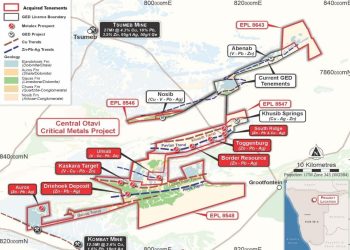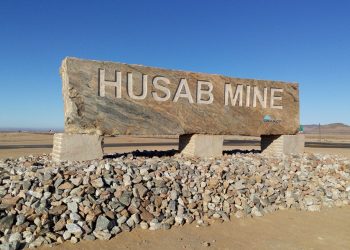
Lepidico says it has secured a two-year renewal of its Exclusive Prospecting Licence (EPL5439) in Namibia.
According to the company, the Ministry of Mines and Energy granted the renewal in late October 2024, allowing Lepidico’s Namibian subsidiary, Lepidico Chemicals Namibia (LCN), to continue exploration activities until June 2026.
The renewal enables Lepidico to pursue further development of its lithium and gold targets within a 165km² area, contiguous with the Karibib project’s mining licence.
“EPL5439 provides opportunity for further expansion of the Mineral Resource base contiguous with the Karibib Lithium Project Mining Licence area (ML204) and evaluation of previously identified gold targets,” the company said.
Lepidico reported that as of 30 September 2024, it held N$50.9 million (US$2.7 million) in cash and has implemented cash-saving measures, such as reducing staff and maintaining the Karibib camp in a “care and maintenance” state.
“The Karibib Camp remains on care and maintenance with a downsized staff complement largely working from home,” it said.
This comes as over the seven years that EPL5439 has been held, LCN’s geology team has identified multiple lithium-rich pegmatites and prospective gold zones.
The Berger’s lepidolite prospect, a key lithium target, is now prepared for initial drilling after extensive exploration and preparation by the LCN team.
The Berger’s site features historical open-pit workings, initially explored for tourmaline but recently found to exhibit characteristics of LCT-type lithium mineralisation similar to the Helikon deposit.
In tandem with the renewal, Lepidico has negotiated land access with local stakeholders to facilitate exploration drilling at Berger’s, following a favourable High Court ruling that confirmed public access via a road intersecting two private farms.
Despite limited exploration activities during the recent quarter, Lepidico remains committed to maximising the value of its Namibian tenements.
The company is actively evaluating EPL5439 for several metals, including lithium, caesium, tantalum, and tungsten, aiming to extend the Karibib project’s operational life beyond 20 years and boost its annual production capacity to 120,000 tonnes of concentrate.







